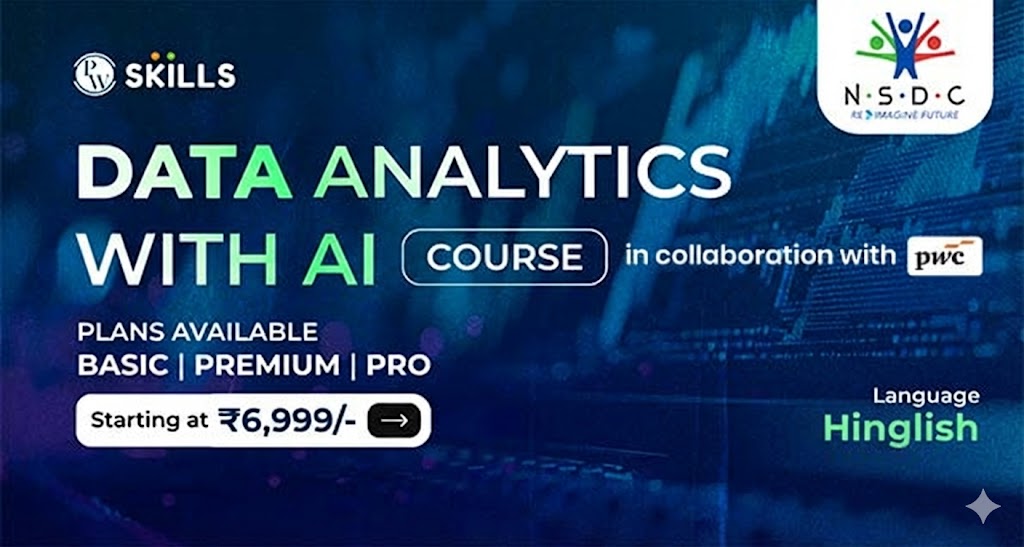In 2024, business intelligence (BI) tools have become crucial for organizations seeking to leverage data for strategic decision-making. As businesses navigate complex environments, these tools provide the necessary insights to drive operational efficiency and enhance performance. The Business Intelligence Tools in 2025 offer a range of functionalities, including data visualization, advanced analytics, and real-time reporting, catering to diverse organizational needs.
These tools are designed to integrate seamlessly with various data sources, enabling users to collect and analyze information efficiently. Many feature intuitive interfaces that make data exploration accessible to both technical and non-technical users. This democratization of data analysis empowers teams across departments to make informed decisions based on actionable insights. Additionally, the 2025 BI landscape emphasizes collaboration, with tools offering sharing capabilities and customizable dashboards that enhance team productivity.
What is Business Intelligence Programs?
Business intelligence (BI) integrates various components such as business analytics, data mining, data visualization, and infrastructure to facilitate data-driven decision-making within organizations. Modern business intelligence is characterized by a holistic view of organizational data, enabling companies to identify inefficiencies, drive strategic changes, and respond swiftly to market dynamics. Key features of contemporary BI solutions include self-service analytics for end users, reliable data governance on trusted platforms, and rapid access to insights.
The evolution of BI was coined in 1989, building on systems that emerged in the 1960s and designed to share information across organizations. Initially, BI focused on turning data into actionable insights but gradually became associated with IT departments, which provided service solutions reliant on specific software. This article aims to provide a foundational understanding of BI, highlighting its historical context and the significant advancements that have shaped its current form, setting the stage for deeper exploration into its capabilities and applications.
Top 15 Business Intelligence Programs Tools in 2025
As we look to 2025, several BI tools stand out for their capabilities, user-friendliness, and innovative features. Here’s a look at the top 15 business intelligence tools that are shaping the future of analytics.
1. SAP Business Objects
SAP Business Objects is a robust business intelligence software that specializes in comprehensive reporting, analysis, and interactive data visualization. It focuses on areas such as Customer Experience (CX), CRM, digital supply chain, and ERP. The platform offers self-service, role-based dashboards, allowing users to create personalized applications. While it caters to all roles, including IT, end users, and management, its complexity can lead to higher costs.
- Website: www.sap.com
Also Check: What Is Business BI?
2. MicroStrategy
MicroStrategy provides an enterprise-level business intelligence solution that excels in high-speed dashboarding and data analytics. It supports cloud solutions and offers hyperintelligence to identify trends and opportunities, improving productivity. Users can connect to various data sources, whether from spreadsheets or enterprise systems. The initial setup may require significant technical knowledge and collaboration among teams.
- Website: www.microstrategy.com
3. SAS Augmented Analytics
SAS is known for its advanced predictive analytics, but it also offers a strong business intelligence platform. This self-service tool allows users to leverage data and metrics for informed decision-making. With extensive customization options through APIs, SAS provides high-level data integration and advanced reporting capabilities, including text analytics for deeper insights.
- Website: www.sas.com
4. Yellowfin BI
Yellowfin BI is an end-to-end analytics platform that integrates visualization, machine learning, and collaboration features. It offers intuitive filtering options and flexible accessibility across devices. The platform allows users to elevate their dashboards using a no-code/low-code development environment, making it user-friendly for diverse users.
- Website: www.yellowfinbi.com
5. QlikSense
QlikSense is a complete data analytics platform that enables access from any device. Its user-friendly interface is optimized for touchscreens, featuring an associative analytics engine and sophisticated AI capabilities. Unique search and conversational analytics tools allow users to discover insights quickly through natural language queries.
- Website: www.qlik.com
6. Zoho Analytics
Zoho Analytics is a self-service BI tool ideal for in-depth reporting and data analysis. It features automatic data synchronization and allows users to blend data from various sources. With an easy-to-use editor for creating personalized reports, it also includes a commenting feature for enhanced collaboration.
- Website: www.zoho.com/analytics
7. Sisense
Sisense is designed for ease of use, enabling users to manage large datasets without IT involvement. It supports integration from diverse sources like Google Analytics and Salesforce, and its in-chip technology ensures quick data processing. Sisense is recognized as a leading cloud analytics platform by various industry experts.
- Website: www.sisense.com
8. Microsoft Power BI
Microsoft Power BI is a web-based analytics tool that excels in data visualization. It enables users to identify real-time trends and features new connectors for enhanced campaign management. Being web-based, it is accessible from various locations and supports app integration for comprehensive reporting.
- Website: www.powerbi.microsoft.com
9. Google Data Studio
Google Data Studio is a free, web-based tool that allows users to create customizable dashboards and reports. It integrates with other Google services, providing real-time data visualization. Its intuitive drag-and-drop interface and sharing features make it suitable for collaboration across teams.
- Website: www.lookerstudio.google.com
10. TIBCO Spotfire
TIBCO Spotfire is a powerful tool for data visualization and advanced analytics. It offers interactive dashboards and predictive analytics capabilities, allowing users to analyze complex datasets efficiently. With drag-and-drop functionality and extensive connectivity options, it supports real-time data insights across various industries.
- Website: www.spotfire.com
11. Clear Analytics
Clear Analytics is an Excel-based BI tool designed for users with basic Excel knowledge. It offers self-service capabilities to automate, analyze, and visualize data. This solution integrates with Microsoft Power BI, enhancing data cleaning and modeling processes.
- Website: www.clearanalyticsbi.com
12. Tableau
Tableau specializes in data discovery and visualization, allowing users to analyze and share data easily. It supports various data sources, providing access to user-friendly dashboards. Tableau offers several products, including Tableau Desktop and Tableau Server, catering to both individuals and organizations.
- Website: www.tableau.com
13. Oracle BI
Oracle Business Intelligence is an enterprise-level suite that offers comprehensive BI capabilities, including dashboards and proactive intelligence. It is particularly effective for analyzing large datasets from both Oracle and non-Oracle sources. Key features include data archiving, versioning, and a self-service portal.
- Website: www.oracle.com
14. Domo
Domo is a cloud-based BI platform that integrates multiple data sources, offering visibility and analytics for businesses of all sizes. It includes predictive analysis powered by its AI engine. Challenges with Domo include the difficulty in exporting analyses and a steep learning curve for new users.
- Website: www.domo.com
15. IBM Cognos Analytics
IBM Cognos Analytics supports the entire analytics cycle, enabling users to visualize, analyze, and share insights. It can uncover hidden patterns through its reporting features. However, familiarizing oneself with its extensive functionalities may require time and effort.
Also Check: Top 20 Big Data Tools Used By Professionals
Free Business Intelligence Programs
Free business intelligence programs offer valuable resources for organizations and individuals looking to analyze data without significant financial investment. Here’s a closer look at some business intelligence tools list
- Google Data Studio: This free, web-based tool allows users to create interactive and customizable dashboards. It integrates seamlessly with other Google services, making it ideal for visualizing data from various sources in real-time.
- Microsoft Power BI (Free Version): While Power BI offers premium features for a fee, the free version provides robust data visualization capabilities. Users can connect to various data sources, create reports, and share insights within their organization.
- Tableau Public: Tableau offers a free version called Tableau Public, which enables users to create and publish interactive data visualizations online. While it lacks some advanced features of the paid version, it is excellent for sharing insights with a broader audience.
- Zoho Analytics (Free Tier): Zoho Analytics provides a free tier that allows users to analyze data and create reports. This version is limited in terms of the number of rows and data sources but still offers essential BI functionalities.
- Apache Superset: This open-source BI tool allows users to create dashboards and visualizations from various data sources. It is highly customizable and suitable for organizations with technical expertise in managing open-source software.
- Metabase: An open-source BI platform that provides an intuitive interface for querying data and creating dashboards. Metabase is easy to set up and use, making it accessible to non-technical users.
- Redash: Another open-source tool, Redash allows users to query data sources and visualize results. It supports multiple data connectors and offers a straightforward way to create dashboards collaboratively.
Also Check: Best 5 Unique Strategies to Use Artificial Intelligence Data Analytics
Business Intelligence Programs in India
India has become a prominent hub for business intelligence (BI) training, responding to the rising demand for data-driven decision-making across various sectors. Here’s an overview of the landscape :
- Diverse Educational Offerings: Numerous universities and institutes provide specialized programs focusing on analytics, data visualization, and reporting tools. These programs are designed to cover essential BI platforms such as SAP Business Objects, Microsoft Power BI, Tableau, and QlikSense.
- Core Curriculum: Most BI programs include training in critical areas like data warehousing, predictive analytics, and business data modeling. This curriculum equips students with the necessary skills to analyze and interpret complex datasets effectively.
- Industry Certifications: Certifications from established organizations like SAS and IBM are also available, which enhance employability. These credentials validate expertise and are recognized by employers across various industries.
- Sector Applications: BI training in India caters to a wide range of industries, including finance, healthcare, retail, and logistics, aligning educational outcomes with market needs.
- Career Prospects: The combination of a robust educational ecosystem and a growing job market makes India an attractive destination for individuals seeking to develop a career in business intelligence.
Learn Business BI With PW Skills
Learn about important and trending business intelligence tools and software with our Data Analytics Course. The course will cover all important aspects of data analysis with industry-level experts.
Enrolling in this course, will provide you with free doubt sessions, daily practice sheets and assignments, regular assessment tests, a course completion certificate, and 100 % placement assistance.
Start your career as a data analyst with PW Skills.
Business Intelligence Programs FAQs
Is SQL a business intelligence tool?
SQL (Structured Query Language) is not a dedicated business intelligence tool but a powerful language used for managing and manipulating relational databases. It plays a crucial role in BI processes by enabling users to extract and analyze data, which can then be transformed into insights for informed decision-making.
Is SAP a business intelligence tool?
Yes, SAP offers a business intelligence solution through SAP BusinessObjects. This centralized suite provides robust features for data reporting, visualization, and sharing, allowing organizations to make data-driven decisions effectively.
Is Excel a business intelligence tool?
Excel can be considered a business intelligence tool, particularly within Office 365 Enterprise. It includes BI capabilities that allow users to analyze data, create visualizations, and share insights. When combined with SharePoint Online, Excel enhances collaborative data analysis and reporting efforts.




